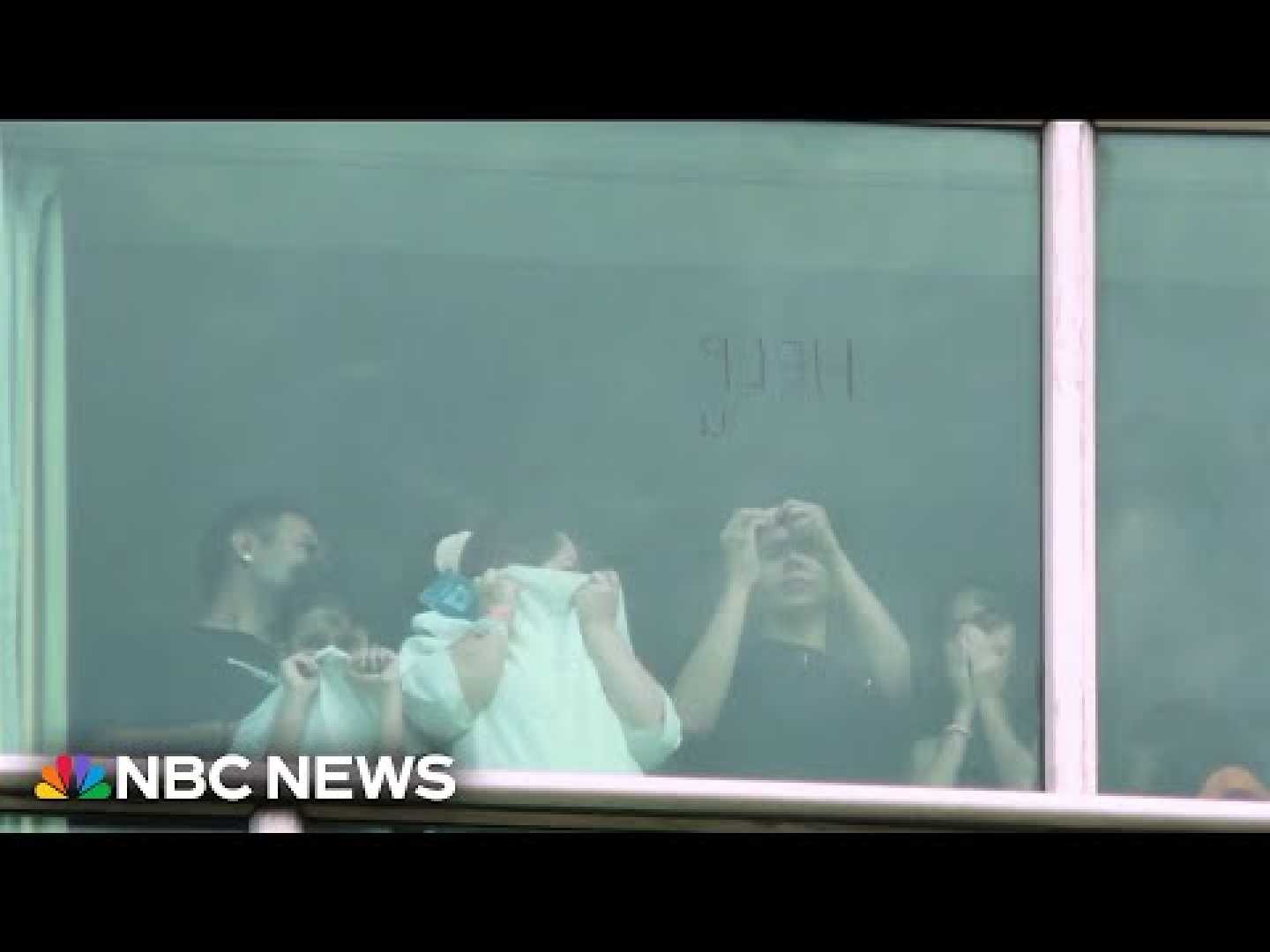World
Panamanian Authorities Detain Nearly 300 Migrants After U.S. Deportations

Panama City, Panama – Nearly 300 migrants from Asia, recently deported from the United States, are currently detained in a hotel amid distressing conditions and limited communication with the outside world. The migrants, mostly from India and Iran, were flown to Panama as part of a repatriation effort coordinated by U.S. authorities.
Since their arrival on February 18, the migrants have been held at the Decapolis Hotel in Panama City under tight security, where they have reportedly faced severe psychological distress. They were initially informed they were being sent to Texas, but upon landing, they found themselves in Panama. Attorney Ali Herischi, representing some migrants, stated that many were caught off guard by the unexpected relocation.
Jenny Soto Fernández, another attorney representing some migrants, highlighted that her clients were effectively isolated from the outside world. She emphasized that many do not understand their rights and have not been provided official removal orders upon deportation, making their situation even more precarious.
One migrant, Artemis Ghasemzadeh, an Iranian national, fears she may be returned to her home country, where she faces persecution for converting to Christianity. “We are in danger,” she wrote in a text message to CNN, expressing the desperate hope for a “miracle.”
Some detainees attempted to convey their plight by sending distress signals to journalists outside the hotel, holding up handwritten signs pleading for help. Messages scrawled on the windows, including “HELP US,” indicate their dire situation.
In response to the ongoing crisis, Panama’s Security Minister Frank Ábrego defended the confinement measures, stating that it was for the safety of the migrants and to allow officials to verify their identities. “These people are in a delicate situation, and we are taking the necessary precautions,” he told a local radio program.
Soto voiced her concerns about the migrants’ right to seek asylum based on their claims of fleeing from violence and persecution. She noted that attempts to meet with her clients to provide necessary legal documents were unsuccessful due to barriers set by authorities.
Meanwhile, President José Raúl Mulino denied any claims of mistreatment, asserting that the government respects human rights. However, he acknowledged that officials had not received any asylum requests from the migrants as of the last updates.
A wave of transfers occurred from the hotel to a remote holding camp after reports surfaced about the migrants’ conditions. Ghasemzadeh was among those moved, and her relatives reported that she was transferred without clarity about her next location.
Herischi described the new camp as harsh, lacking basic hygiene facilities and limited access to medication. “The conditions are very poor,” he remarked, raising concerns about the health and well-being of the detained migrants, particularly children who are among them.
As the situation unfolds, the International Organization for Migration (IOM) is collaborating with Panamanian authorities to determine the next steps for migrants who have expressed a desire to avoid repatriation. Currently, more than 100 migrants have reportedly requested not to be sent back to their home nations.
Security Minister Ábrego suggested that while they are evaluating asylum claims, many migrants are choosing to return home voluntarily, with 175 still at the hotel indicating they might wish to go back. However, authorities remain committed to finding alternative solutions and third-country resettlement opportunities for those who are unable to safely return. “That’s the best we can do for their safety,” he said.












